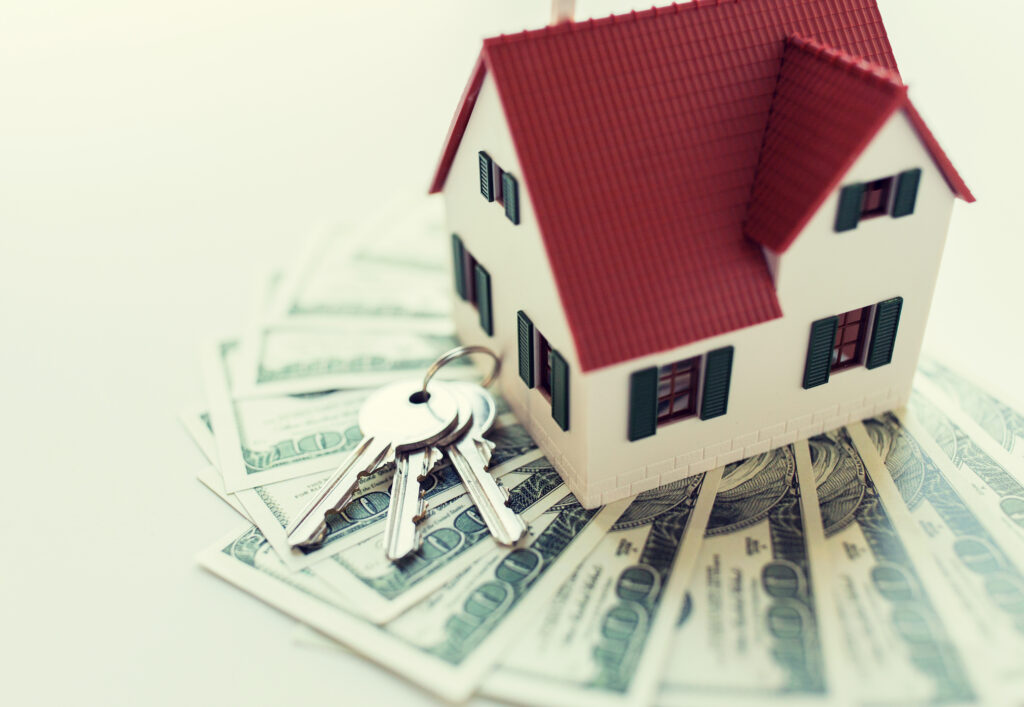Read to the end to find a Quick N Easy Offer if you want to sell your home fast but you are not sure what price you can get for your house.
What price should you ask for?
First of all, never use the words “asking price” because it means you don’t expect it and therefore you won’t get it.
Pricing your house depends on numerous market conditions and financial factors:
1. Piggybank in the middle
The golden mean between excess and deficiency
This universal ancient wisdom never fails.
When pricing your property, take into account the buyer’s mindset.
If the price is too steep, your house will be completely ignored, even if it’s the best place in the neighborhood. It doesn’t matter if you are prepared to take less, the prospective buyer looking at the listing price doesn’t know that. So compared to other houses on the market, your house seems too expensive to even enter the realms of possibility in the mind of the buyer.
If the price falls short of its real value, however, then you’ll lose out big time. Yes, your house will sell swiftly, but the extra money you could have made had you waited (for a higher list price to be paid) will fly away just as fast.
2. Price over prettiness
Check out the local competition
Looks aren’t everything, especially if the price on similar properties (as beautiful or not) is the same or lower.
The best guide is a record of what buyers have been paying lately in your locale. Whether you or an expert find the data on sales figures for similar sales and analyze them to come up with a possible list price, the final decision is yours.
The list of similar sales (which estate agents provide) contains data:
regarding other houses currently on the market in your area. This is used for a Comparative Market Analysis (CMA), which helps estimate a possible sale price for your house.
Moreover, the analysis provides data on houses in the area that still haven’t been sold in recent months as well as their prices.
A Comparative Market Analysis differs from a formal appraisal in several ways.
An appraisal:
- is only based on past sales.
- is done for a fee.
The Comparative Market Analysis, on the other hand, is provided by your REALTOR© and sometimes includes houses recently listed for sale as well as those currently pending sale. For the average home sale, a Comparative Market Analysis usually provides enough data to set the right price.
A formal written appraisal (which could set you back hundreds of dollars) is worthwhile if:
- your house is one of a kind,
- activity in your area is low of late,
- co-owners disagree on the price,
- there are other circumstances that complicate valuing your home.
By the way, if you opt for a market value appraisal, clarify that you don’t need an elaborate, full narrative report including photos of the property and neighborhood. Floor plans and a site map will usually suffice.
3. Buyer’s or seller’s: what kind of market is it anyway?
A Comparative Market Analysis usually includes a Days on the Market (DOM) value for each similar house that is sold. When real estate is hot and prices are soaring, houses can sell in a matter of days but when the market is slow, the average number of Days On the Market is quickly counted in terms of months instead of days.
A REALTOR© can inform you as to whether your area is in a buyer’s market or a seller’s market. In a seller’s market, you can price higher than your expected price as an experiment, to see if any buyers bite the bait. In a buyer’s market, if you really need to sell quickly and easily then the offer should be at an alluringly low price.
4. Aim high, plan low
How low can you go?
Sellers occasionally list at their lowest price to avoid negotiating dance involved. Others, meanwhile, increase the price by the thousand to see what happens. If you want to play that game and have all the time in the world to wait, then make sure you organize a schedule for decreasing the price if you don’t strike it lucky.
After a few weeks have elapsed without any prospects viewing your house then it’s time to reduce the price periodically until you start attracting buyers. Write down your schedule beforehand, otherwise, you may become pig-headed about taking the price down a peg or two.
5. Cash sells
Occasionally cash incentives can be as effective as reducing the price, mainly in the lower cost range where buyers are sometimes strapped for cash. You could offer to pay for the buyer’s:
- closing costs,
- discount points (which are fees paid directly to the lender at closing in exchange for a reduced interest rate).
If you lack visitors to your house and need to sell quickly, offer a bonus to the selling broker on top of their commission.
6. A bit of guesswork
Costing an arm and a leg
When your estate agent has provided an estimate of your house’s market value you will have a vague idea of how much money you could receive when the house is finally sold. This is important if you’re planning to purchase another house with the money.
To work out what you could make, take the estimated sales amount and subtract from that the following costs (if applicable):
Seller’s Costs:
- payoff figure on present loan(s)
- broker commission
- prepayment penalty on mortgage
- attorney fees
- unpaid property taxes
Buyer’s/Seller’s Costs:
- title insurance premium
- transfer taxes
- survey fees
- inspections and repairs for termites
- recording fees
- Homeowner Association transfer fees and document preparation
- home protection plan
- natural hazard disclosure report
Closing Costs:
Your estate agent can advise you on closing costs, but in the end, they are agreed upon by you and the buyer.
So what should you do? If you want to avoid these unnecessary expenses and just sell your house fast, you could just come to us and we’ll provide you with a Quick N Easy Offer within a few working days.





